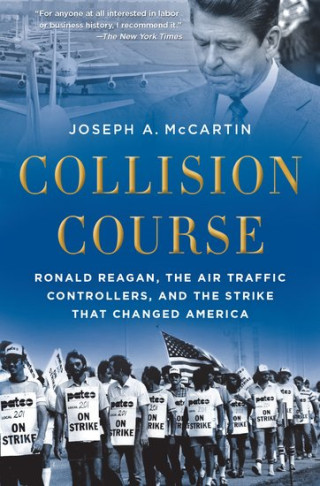“The #TrumpShutdown has already pushed hundreds of thousands of Americans to the breaking point. Now it’s pushing our airspace to the breaking point too,” tweeted House Speaker Nancy Pelosi (D-Calif.) on Friday as air traffic snarled along the East Coast and New York’s LaGuardia Airport became paralyzed. That chaos was a consequence of air traffic controllers calling in sick. Within hours of these reports, Trump backed down without extracting the commitments he had sought from Democrats and reached a deal with congressional leaders to reopen the government.
The role of air traffic controllers in these events calls to mind a quip attributed to Mark Twain: History doesn’t repeat itself, but occasionally it rhymes. Air traffic controllers revectored the course of U.S. history once before. The illegal strike of the Professional Air Traffic Controllers Organization (PATCO) in 1981 led President Ronald Reagan to fire and replace more than 11,000 controllers, inaugurating an era of diminished worker bargaining power. In time, we might come to see the controllers’ actions on Friday as a historical bookend, signaling — finally — the end of that era. It also shows that labor still has some power, at least when public opinion is on its side.
For weeks, commentators marveled that hundreds of thousands of federal workers, including the controllers, reported to work day after day without being paid, or knowing when they would be paid. “This government shutdown would’ve lasted like a day in European countries because no one would go to work without getting paid,” one observed on Twitter. Indeed, it’s difficult to imagine that French public sector unions would have simply organized a 33-minute silent vigil in protest as U.S. unionists did on day 33 of the shutdown at the Hart Senate Office Building.
While some private-sector unionists, like Sara Nelson, president of the Association of Flight Attendants, pledged to gather support for a “general strike” if that’s what it took to break the shutdown impasse, leaders of federal workers’ unions consistently repudiated collective action. Paul Rinaldi, the president of the National Air Traffic Controllers Association (NATCA), the controllers’ union organized in the aftermath of PATCO’s destruction, was one. As it became clear that staffing shortages were producing air traffic delays on day 35, Rinaldi announced that NATCA did not “condone or endorse any federal employees participating in or endorsing a coordinated activity that negatively effects the capacity of the National Airspace System.”
